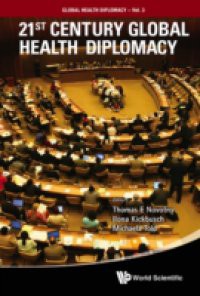Global health diplomacy begins with a recognition that the most effective international health interventions are carried out with sensitivity to historical, political, social, economic, and cultural differences. It focuses on the interplay of globalization, economic interdependence, social justice, and the enlightened self-interests of nations. Global health diplomacy can help sustain peace and economic stability in a globalized world, but the skills necessary for this endeavour are not taught in standard health sciences curricula or in Foreign Service academies. However, they bear directly on the success of international health cooperation, be it from the global north to the global south or south-to-south cooperation. Global health diplomacy can be a critical pathway to assure good global governance and improved international relations among the great powers and between these powers and the developing world. It can be a mechanism to avert conflict and to augment health, peace, solidarity, economic progress, and multinational cooperation.Contents:21st Century Health Diplomacy: A New Relationship Between Foreign Policy and Health (Ilona Kickbusch)A History of International Health Encounters: Diplomacy in Transition (Vincanne Adams)Governance and Actors in Global Health Diplomacy (Wolfgang Hein)Instruments of Health Diplomacy (Ebony Bertorelli, Steven A Solomon and Nick Drager)Global Health in International Politics (Harley Feldbaum)Health is an Integral Part of Foreign Policy (Santiago Alcázar and Paulo Buss)Global Health and Security (Kristofer Bergh and Bates Gill)Military Health Diplomacy (Eugene V Bonventre and Lt Col Valérie Denux)Health Diplomacy in Humanitarian Action (Valerie Percival)Key Factors in Negotiations for Health (Kelley Lee)Global Health Begins at Home: Policy Coherence (Gaudenz Silberschmidt and Thomas Zeltner)The Way Forward in Global Health Diplomacy: Definitions, Research, and Training (Thomas E Novotny and Sebastian Kevany)Readership: Graduate students in global health masters and PhD programs. Students doing short courses in health diplomacy.

